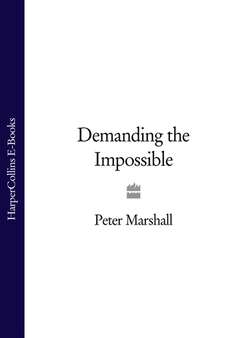Читать книгу Demanding the Impossible - Peter Marshall - Страница 36
Morelly
ОглавлениеMeslier was not the only one to entertain such visionary thoughts. One Morelly, whose exact identity is still not known, wrote an allegorical poem called the Basiliade in 1753 which depicted an ideal society organized by Adam and Eve who are prudent enough not to commit any errors before founding a family. Morelly’s Code de la nature, which appeared anonymously in 1755, elaborates the social theory implicit in the first work in an uneven and turgid style. The first three sections attack the existing moral and political system, with its unequal property relations and class divisions, and the fourth section presents Morelly’s own ideal pattern of laws.
Morelly’s starting-point is nature which is a constant moral order governed by eternal laws. Unfortunately, men are not content to follow the dictates of nature; hence, ‘you will see quite clearly the simplest and most excellent lessons of Nature continually contradicted by everyday morals and politics.’22 In particular, the system of private property has aggravated the unnatural ‘desire to possess’ which is the basis and vehicle of all the other vices.
But it need not always be like this. Man is not born vicious and wicked. He is naturally social and benevolent, but corrupted by the institutions surrounding him. God or rather Supreme Wisdom (Morelly is a deist, not an atheist like Meslier) has created in man a sense of self-interest (amour propre) in order to preserve his existence, but existing institutions transform it into vicious selfishness. However, man is also capable of attraction morale; since he cannot always satisfy his needs alone, he feels benevolent affection towards those who help him. The desire to be happy is fundamental and if ‘you want to be happy, be benevolent’.23
It follows for Morelly that if people would only obey the laws of nature and return to their original integrity and values, then no artificial laws would be necessary. And if they replaced the existing system of private property with communal ownership, there would be little cause for vicious conduct since ‘Where no property existed, none of its pernicious consequences could occur’.24
Nothing, he concluded in his proposed code of laws, should belong to anyone individually as his sole property except such things as he puts to his personal use, whether for his needs, his pleasure or his daily work. He expected every citizen to contribute his share to the commonweal according to his abilities and be maintained at the public expense. Like later anarchists, Morelly felt that human beings are not lazy by nature, but are made so by social institutions.
By seeing private property rather than government as the main cause of evil, Morelly was a forerunner of communism. Moreover, he attempted to lay down in the fourth part of his Code de la nature a ‘Model of Legislation conforming to the intentions of Nature’, that is to say, laws of society which would correspond to natural laws. His proposed communist society was austere and authoritarian with strict education and compulsory labour and marriage. The family would be the base of a social hierarchy composed of tribes organized in cities and provinces. The administration of the economy would be merely a matter of accounting, with a minimal government periodically rotated. There would be a strict overall plan and the only philosophy taught would support the laws. The result would be a ‘very fine order’. Those who oppose that order would be punished, the worst offenders being isolated in caverns which eventually would become their tombs. He thought a transitional society of ‘some severity’ may be necessary to achieve communism.
Morelly inspired the egalitarian and communist wing of the French Revolution. Gracchius Babeuf, who led the ‘Conspiracy of Equals’ claimed that the author of the Code de la nature was the true leader of the conspiracy; both certainly confused authority with security. At the same time, Morelly’s insistence that institutions must conform to the intentions of nature has an authentic libertarian ring about it. His interest in creating circumstances to encourage benevolence and to bring about happiness anticipates Charles Fourier. It was not without reason that Proudhon should praise his ‘negation of government’.25 Later anarcho-communists like Kropotkin drew more libertarian conclusions because they simply interpreted the lessons of nature in a different way.
